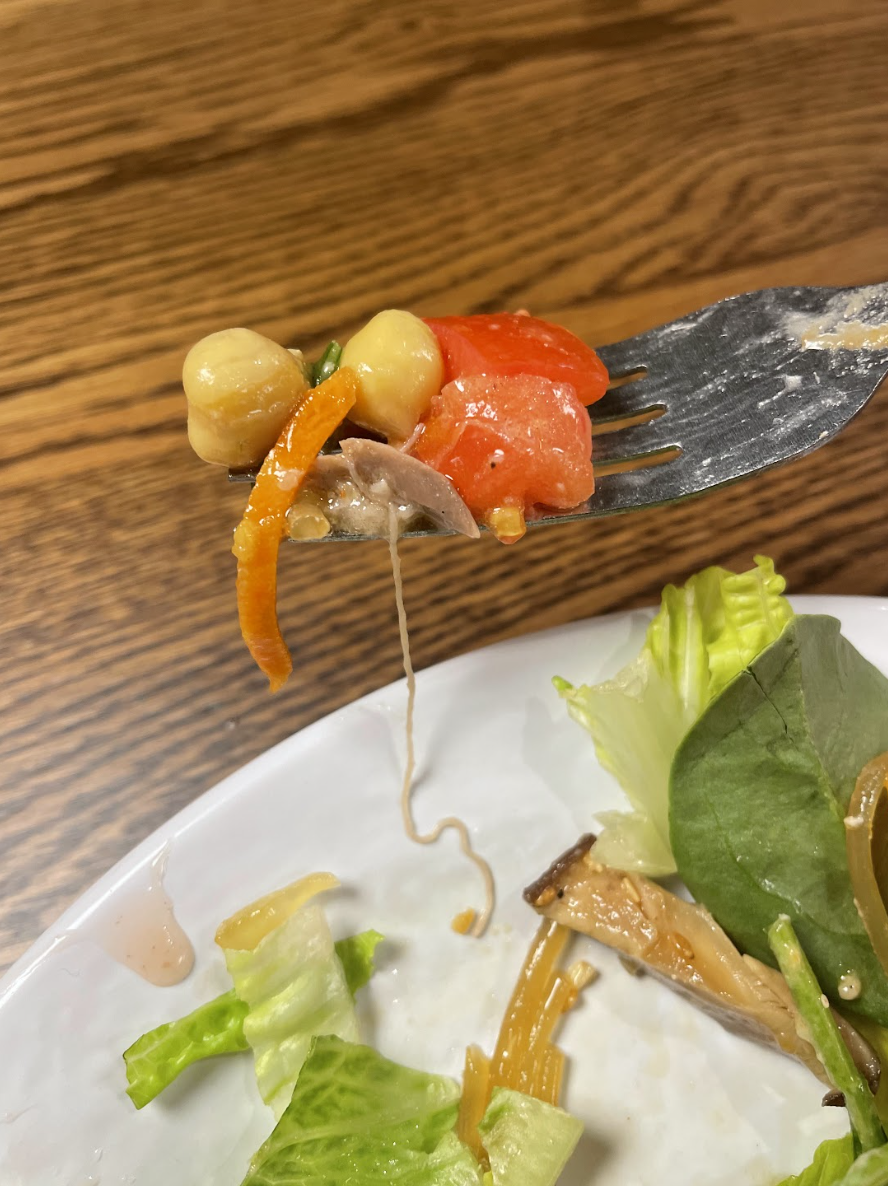Photo courtesy of Haiden Peavey ‘27.
By Paige Comeau ’26
Staff Writer
On April 8, Mount Holyoke News published a piece titled “Students believe the Dining Commons is giving them food poisoning, the College disagrees,” discussing the experiences of the wider student community with food poisoning and sickness from the dining hall food.
Since then, several students and community members have further contributed to the discussion, commenting on their own experiences with Dining Services online, in person and directly to Mount Holyoke News. To garner a broader perspective of feelings about Dining Services, Mount Holyoke News spoke to several community members, including students, past and present, as well as family and friends of the college.
After reading the previous article, MJ Khan ’24 reached out to Mount Holyoke News hoping to speak on their own experiences with sickness from Blanch. According to Khan, their body often reacts poorly to Dining Commons food, ranging from simple annoyances like bloating to more serious instances of food poisoning, which their Telehealth provider has previously diagnosed them with.
When asked to describe their thoughts on Dining Services, Khan emphasized, “I hate going to the dining hall. Every time I enter, I immediately get nauseous because I get sick from the food often. … [I] only go to the dining hall because I need to not die.”
Mainly, Khan's dissatisfaction with the Dining Commons stems from what they describe as poor food quality, limited options and frequent digestive issues. It is worth noting that they are not alone in their grievances. Increasingly, it seems these issues are a common concern among the larger community.
In conversation with Mount Holyoke News, Haiden Peavey ’27 claimed that the food served at the Dining Commons often makes them feel lethargic and sick, something they cannot avoid due to the limited options available. “It’s gotten to the point that if I have a lot of work to do/something important, I will live off of snacks in my dorm and avoid the Dining Commons,” Peavey said.
The biggest issue she has had with Dining Services, however, is the large roundworm she claims she once found in her salmon. While parasites are not abnormal or particularly harmful in salmon, they are killed through the freezing or cooking process. Peavey claims this is the first time she has ever seen a parasite like it in her fish, something she considers notable because she eats seafood often.
While Peavey and Khan’s experiences reflect current student complaints, they are not the only ones who have expressed concern over food quality. Several alums have responded to Mount Holyoke News’ previous coverage with experiences of their own.
One Mount Holyoke College alum, Riannon Robertson ’22, claimed that, in her time at Mount Holyoke College, she often heard complaints about the food, which ramped up particularly during the COVID-19 pandemic due to staffing shortages.
Robertson told Mount Holyoke News that “there were issues of allergen-free food being swapped with allergen food, frustration and disappointment over certain stations never being open … and undercooked meat.” Further, throughout their time at the College, Robertson claimed “that [these] problems just got worse, from occasional to much more frequent.”
Robertson expressed their belief that most of these issues stemmed from understaffing and the pressures of centralized dining. “I had heard about people getting food poisoning, but believed it a bit more in my senior year (2021-2022) because of the understaffing,” Robertson wrote, in a statement to Mount Holyoke News.
The belief that staffing shortages may cause complications within Dining Services is one that alum Wellington Tremayne ʼ17 shares.
“I think it’s a fair assessment that [dining] centralization is partially the culprit, and I think it’s also fair [to say] that worker stress can lead to poor results,” Tremayne wrote, in a statement to Mount Holyoke News. “I would know. I’ve worked in food service [off-campus], and I’ve met many people who have, or still do, work in food service,”
Nonetheless, Tremayne remains unconvinced that the Dining Commons is at fault for breakouts of gastrointestinal illness. Instead, they believe students may unwittingly be causing the illnesses themselves.
“I do think that there’s a possibility that some students have no idea how to handle food because they have had it done for them all their lives,” Treymayne said. “[For example,] I was aware of an individual at Mount Holyoke who had never once been instructed that they could not store dairy at room temperature. And so they attempted to do so, much to the dismay of their roommate.”
Moreover, they believe that student diets could be a factor. Tremayne claims that during their time at the College, “a number of the individuals who expressed discomfort related to digestion primarily ate at [the Dining Commons], and largely the most unhealthy food.”
“If you find you are primarily eating fatty foods and consistently getting sick, I would start checking what you are consuming,” Tremayne said. “Your body will thank you.”
Tremayne is not the only person who believes Dining Services is not at fault. Marge Anderson ’85 expressed her disagreement with the idea that the Dining Commons may be making people sick or that centralization may cause quality control issues through a comment on Mount Holyoke News’ Instagram page (@mtholyokenews_).
“Blanchard is an abundance of choice that we could never have imagined in the 1980’s. Dining there is a serious privilege,” Anderson said in her comment. While some may consider the Dining Commons a privilege, it is certainly not for everyone. Until it is, stories like those that Khan and Peavey shared will remain part of an important campus conversation.

